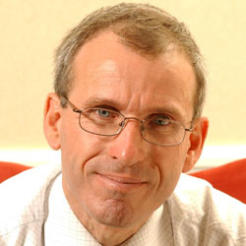Andrew Hind has said there needs to be a better understanding of the Charity Commission’s willingness to allow payment of trustees, arguing that among larger charities “there is increasingly a case for many of those boards to have paid trustees”.
Speaking at the Russam GMS Annual Interim Management Summer Congress, Hind (pictured) said: “I think there’s a challenge for the Charity Commission to communicate better that there are all types of circumstances in which we are prepared to agree that they can remunerate their board.
“Otherwise you find it too difficult to attract the kind of skills you need, but also you don’t build really diverse boards with wide ranges of experience because the only people who serve on boards where you need a day or two a month are the people who can afford to do it.
“That’s why the vast majority of trustees are over 55, because they’re retired and they’ve got pensions, and I think increasingly we need to see a bit more change there.”
Payment by smaller charities “counterproductive”
However, he ruled out removing the need for the Commission’s express permission to pay trustees, as “it would not be in the interests of the broader sector to have no controls at all”.
He explained: “How can you have a small fundraiser for a PTA or local environmental sector that raises 600 quid, and then say ‘there’s an honorarium attached to our board members and we all get 500 a year for sitting on the board’.
“You don’t need to do it, it’s counterproductive.”
Hind also addressed the issue of salaries for executives, saying the sector needs to be more honest with the public.
“The leading charities are themselves to blame for the fact that there is a general public perception that it’s unacceptable to pay competitive salaries for sector leaders.
“I say that because I think too many charities continually talk down the level of administration costs that is needed to run and lead complex charitable organisations.”









